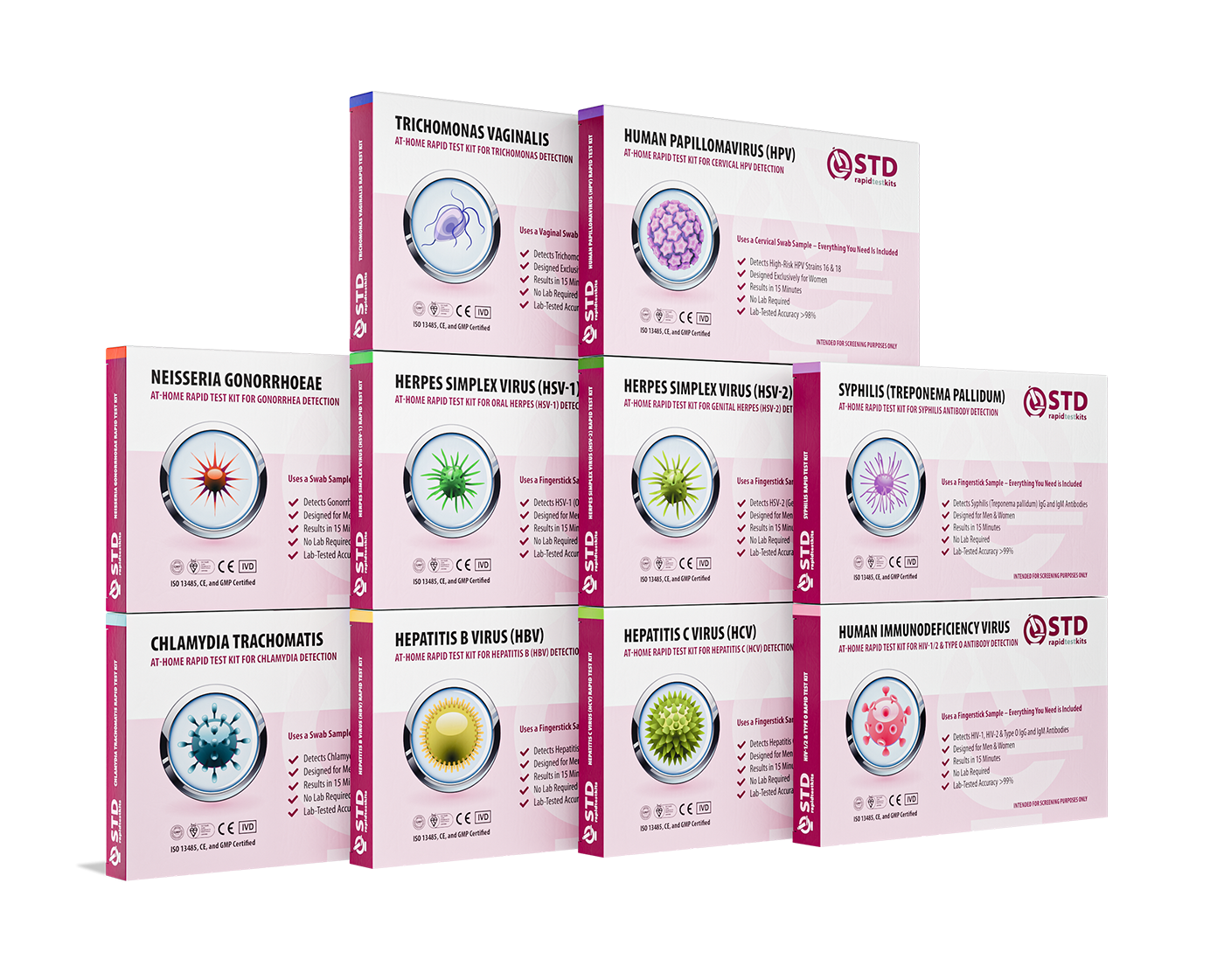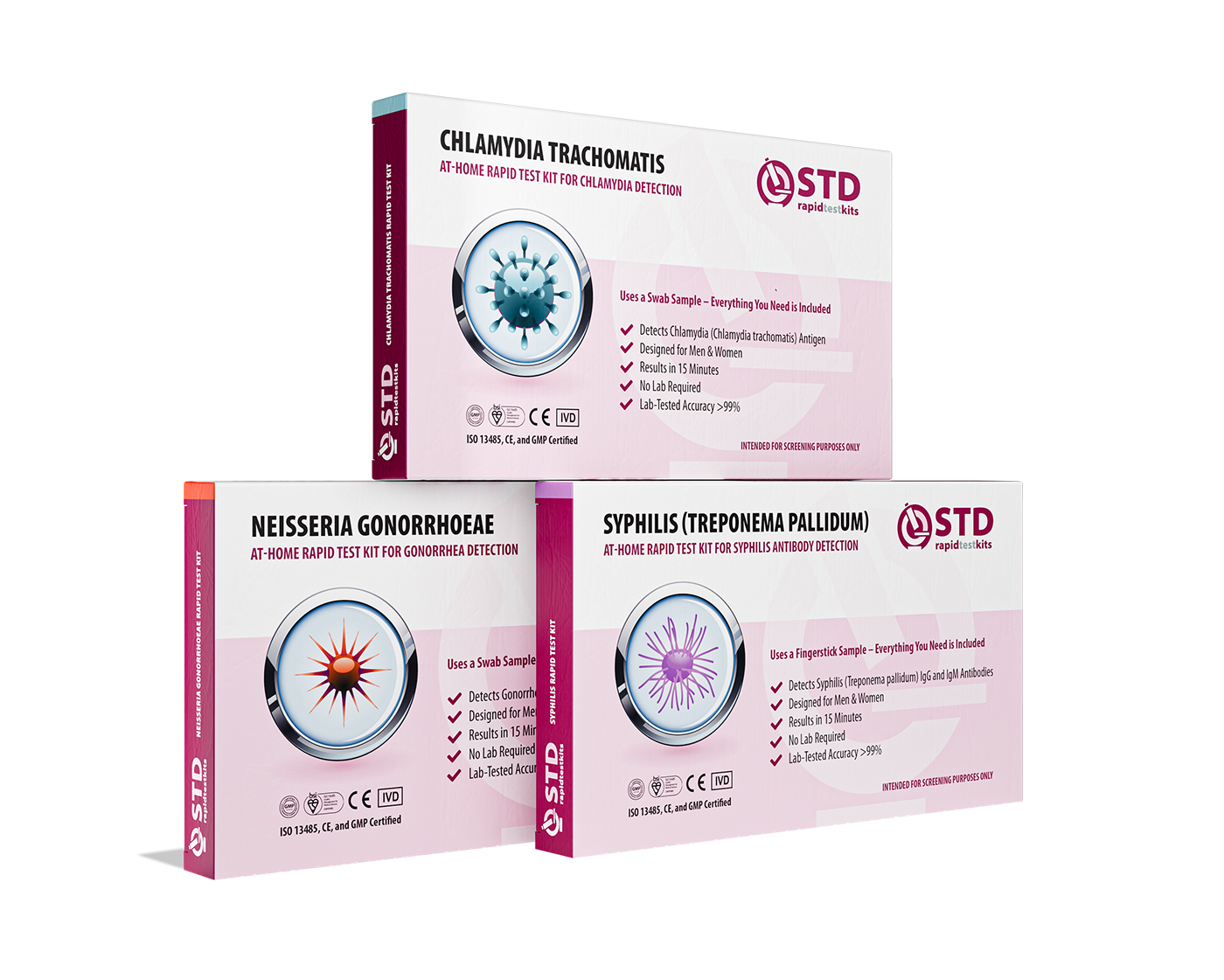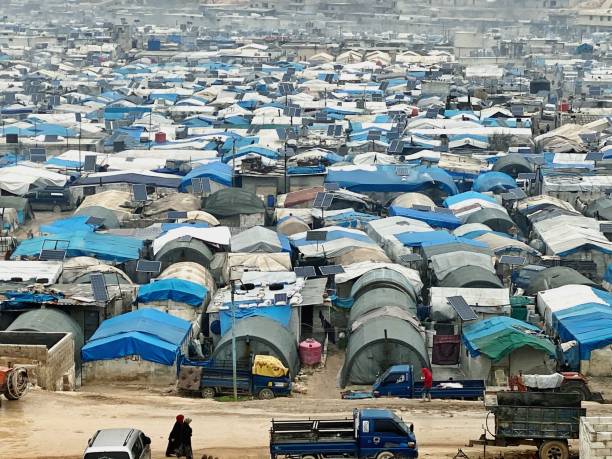Quick Answer: STD screening is often deprioritized in refugee camps and resettlement programs due to limited funding, staffing, stigma, and more “urgent” health needs. But ignoring sexual health in crisis care creates long-term consequences, especially for women, LGBTQ+ migrants, and survivors of violence. Testing must be part of basic humanitarian care.
Why STD Screening Is Rare in Humanitarian Settings
Sexual health is still seen as secondary, even in programs meant to support displaced people. It gets pushed aside because of:
- Lack of trained staff: Emergency medical workers are rarely trained in sexual health screening or counseling
- Funding gaps: Donors prioritize food, water, and shelter, leaving STD care unfunded
- Stigma and legal risk: In many host countries, LGBTQ+ status or STI disclosure can lead to arrest or rejection
- Survivor silence: People who experienced sexual violence during migration may not feel safe disclosing symptoms
The result? Undiagnosed infections, rising HIV rates, and long-term reproductive harm, especially for women and youth.
People are also reading: From Gums to Tonsils: The STD Symptoms Dentists Are Catching First
What Happens When STD Care Is Delayed
Let’s be clear: untreated STDs aren’t just inconvenient. They’re life-altering. Refugees are often left without access to even basic antibiotics, and what begins as a manageable infection can turn into:
- Pelvic inflammatory disease (PID) in women
- Infertility or ectopic pregnancies
- Chronic pain or disfigurement from syphilis or herpes
- Unintended HIV transmission due to lack of viral suppression
Without screening, communities live in uncertainty. People become afraid to touch, kiss, or form relationships. Others pass infections unknowingly. It becomes a trauma cycle, one that begins in crisis but follows people into resettlement.
Sexual Violence and STD Risk in Displacement
In conflict zones and during migration, sexual violence is tragically common. Women, girls, LGBTQ+ individuals, and even men are often targeted. Yet STD screening isn’t automatically offered, let alone trauma-informed care.
Barriers survivors face:
- Fear of retaliation or disbelief
- Language and translation gaps during exams
- Shame and cultural silencing
- Lack of female providers or safe clinics
Even in cases where survivors disclose abuse, they may not be tested for HIV, syphilis, or gonorrhea. Some humanitarian providers avoid STD screening to “prevent panic,” while others lack the supplies or staff. This leaves survivors to suffer in silence, often without knowing they’re at risk.
Resettled Doesn’t Mean Recovered: STD Care in Host Countries
For refugees who make it to the U.S., Canada, or Europe, resettlement doesn’t guarantee medical access. STD care often depends on a patchwork of local health systems, language access, and whether the refugee is documented.
Challenges resettled people face:
- No insurance or confusing paperwork
- Limited clinics that speak their language or understand their trauma
- Cultural or religious stigma around STD testing
- Long waits or referrals that never follow up
Some refugees report being shamed for asking about testing. Others avoid care entirely out of fear of being “outed” or misunderstood. That’s why at-home STD test kits, shipped discreetly, no ID required, can be a game changer.
Privacy, autonomy, and language-free instructions matter. For a refugee survivor rebuilding trust, that could be the first step toward healing.
Check Your STD Status in Minutes
Test at Home with Remedium10-in-1 STD Test Kit

 For Women
For Women Results in Minutes
Results in Minutes No Lab Needed
No Lab Needed Private & Discreet
Private & DiscreetOrder Now $189.00 $490.00
For all 10 tests
How Humanitarian Agencies Can Prioritize STD Testing
It doesn’t take a hospital to screen for STDs. But it does take political will, community trust, and simple tools. Organizations working in camps or resettlement need to shift from “emergency-only” to whole-body health, including sexual health.
Here’s what works:
- Include STD screening in primary care checkups, not just “on request” or post-assault
- Train lay workers and community health agents to recognize and respond to symptoms
- Use rapid test kits that require minimal equipment and give fast results
- Partner with trauma-informed NGOs to provide culturally sensitive care
STD screening isn’t just about science, it’s about dignity. A person fleeing war should not have to beg for an HIV test. A teen who was assaulted in transit should not wait years for a chlamydia result.
Why Refugee Women and LGBTQ+ People Are Most at Risk
STD screening gaps impact everyone, but not equally. Women, especially young or unmarried ones, are rarely believed when they report symptoms. LGBTQ+ refugees may be criminalized, even in health settings. And trans refugees often face complete erasure in medical forms or exams.
Without safe, inclusive care:
- Trans refugees may avoid clinics entirely to escape abuse
- Lesbian and bisexual women are excluded from routine screenings
- Gay and queer men may fear outing or detention
STD care that ignores gender identity or assumes “low risk” based on stereotypes will always fail the most vulnerable. That’s why anonymous testing options, and better provider training, are so critical.
Mobile Clinics and Test Kit Distribution: A Game Changer?
One of the most promising developments in refugee sexual health is the rise of mobile clinics and portable STD test kits. These services bring care directly to camps, urban encampments, or informal settlements, bypassing some of the biggest barriers to access.
Benefits include:
- On-site results: Some tests return results in under 30 minutes
- Reduced stigma: People don’t have to enter “STD clinics” or ask publicly for sexual health care
- More consistent follow-up: Especially when paired with community health educators
Rapid test kits for chlamydia, gonorrhea, HIV, and syphilis are lightweight, affordable, and accurate. In crisis zones, they could save lives, prevent outbreaks, and give refugees one less thing to fear.
People are also reading: My Throat Hurt for Weeks, Turns Out It Was Syphilis
Local Advocacy and Peer Education: What Works on the Ground
Top-down aid isn’t enough. Peer education and community-based outreach work best when it comes to sexual health in displaced populations. Why? Because trust matters more than titles.
Peer-led programs have helped:
- Translate medical terms into local dialects without shame
- Debunk myths about how STDs spread and what symptoms mean
- Encourage testing and treatment through shared lived experiences
Training refugees themselves to deliver messages about STD prevention and self-testing creates real, lasting impact. These leaders aren’t “outsiders”, they’re people who understand fear, survival, and the urgent need for answers.
Children, Adolescents, and the STD Blind Spot
STD screening in refugee contexts often ignores one critical group: adolescents and unaccompanied minors. Many aid agencies avoid this topic entirely, fearing political backlash or cultural offense. But refugee teens are sexually active too, and often at high risk due to trauma, coercion, or survival sex.
Key challenges:
- No youth-friendly services in camps
- Parental or guardian consent barriers
- Lack of privacy for adolescents to seek help
Without intervention, STDs can go undetected for years. And teens, especially girls, may be blamed, shamed, or married off instead of treated. Comprehensive sexual health education and screening must include youth, or we fail an entire generation of displaced people.
Check Your STD Status in Minutes
Test at Home with Remedium3-in-1 STD Test Kit

 For Men & Women
For Men & Women Results in Minutes
Results in Minutes No Lab Needed
No Lab Needed Private & Discreet
Private & DiscreetOrder Now $69.00 $147.00
For all 3 tests
Mental Health and STD Risk: The Invisible Link
Living through war, displacement, and trauma doesn’t just affect the body. Mental health struggles increase vulnerability to unsafe sex, especially when people are coping with PTSD, depression, or substance use.
Why this matters for STD care:
- Unaddressed trauma reduces motivation to seek medical help
- Shame and guilt around sex are heightened in conservative or war-torn settings
- Survival coping mechanisms (like transactional sex) become normalized
Integrating trauma-informed mental health support alongside sexual health screening can help displaced people feel seen, not judged. It's not just about testing, it’s about restoring the will to protect yourself when everything feels broken.
Faith-Based Groups: Barrier or Bridge to STD Screening?
In many refugee settlements, faith-based organizations are the main providers of care. This can be a blessing, or a huge roadblock, depending on the group’s stance on sexual health.
What can help:
- Training clergy or aid workers to offer fact-based, stigma-free health info
- Partnering with secular medical providers to expand services discreetly
- Highlighting moral arguments for health: “protecting life,” “honoring the body,” etc.
Faith doesn't have to cancel out care. When religious organizations prioritize compassion over dogma, they can become powerful allies in STD education and testing.
A Future Where Crisis Care Includes Sexual Health
It’s time to stop treating STD care as optional. As the world faces more displacement, climate refugees, war, political collapse, sexual health must be part of every emergency response protocol.
What that future looks like:
- Every refugee registration includes voluntary STD screening
- Test kits in every mobile health unit and camp pharmacy
- Multilingual, trauma-informed health workers trained to counsel without judgment
STD testing shouldn’t be a privilege, it should be part of survival. And every time we leave it out, we leave people behind.
Data Gaps: Why We Don’t Know How Bad It Really Is
One of the most critical issues in refugee sexual health is invisibility. Most refugee camps and resettlement programs don’t track STD prevalence systematically. Without data, there’s no funding. Without funding, there’s no testing. And without testing, the cycle continues.
Reasons for the gap include:
- Fear of drawing attention to “sensitive” topics
- No standard protocols for STD surveillance in crisis zones
- Underreporting by patients afraid of stigma or deportation
When global health reports skip STD numbers for displaced people, it sends the message that these infections don’t matter in emergencies. But they do. And without visibility, there’s no accountability.
People are also reading: White Patches, Weird Breath, and Swollen Glands: Is It an STD or Something Else?
Beyond Aid: Supporting Refugees in Taking Control of Their Sexual Health
It’s not just about what clinics and NGOs do. It’s about empowering displaced people to make informed, autonomous choices about their sexual health. That means tools, education, and access without strings.
What this could look like:
- Free test kits distributed alongside hygiene supplies
- Workshops led by refugee educators on safe sex and self-testing
- Anonymous helplines or app-based result services for those afraid to visit clinics
Refugees are not passive recipients of care, they are survivors and decision-makers. STD care that respects their autonomy is care that actually works.
FAQs
1. Are STD screenings routinely offered in refugee camps?
No. Most camps focus on emergency health like vaccinations and injury care. STD testing is often absent unless someone reports symptoms or assault.
2. Can refugees access STD tests in host countries?
It varies. Some countries offer free care; others restrict it based on legal status. Language, stigma, and system complexity often block access.
3. Do humanitarian aid organizations test for HIV?
Some do, especially in regions with high prevalence. But it’s not always standard, and not always safe for LGBTQ+ refugees in certain countries.
4. What happens if a refugee tests positive for an STD?
If care is available, treatment may be offered. But many are left untreated due to supply shortages, legal fears, or stigma.
5. Are STD home test kits useful for refugees?
Yes, especially for those in resettlement or urban areas. They offer privacy, autonomy, and no need for ID or insurance.
6. Can sexual violence survivors in camps get tested?
Sometimes. But even when assault is reported, STD screening isn’t guaranteed. Many go without testing due to fear or lack of resources.
7. Are LGBTQ+ refugees more at risk for STDs?
Yes. They face higher rates of assault, marginalization, and criminalization, while also being least likely to access safe, inclusive care.
8. Why isn’t STD care prioritized in crisis response?
Because it’s wrongly viewed as non-urgent. Taboos, funding limits, and lack of trained staff make sexual health “someone else’s problem.”
9. What are the long-term risks of untreated STDs?
Infertility, chronic pain, increased HIV risk, and complications during pregnancy or birth. The impact stretches well beyond displacement.
10. How can resettlement programs do better?
By making STD screening part of intake, training providers in trauma-informed care, and offering confidential, multilingual support services.
Health Without Borders Means STD Care for All
No one chooses to be displaced. But displacement should not mean defaulting to survival-only care. Sexual health is survival. STD testing isn’t “extra”, it’s essential.
Refugees and resettled populations deserve more than food and shelter. They deserve trauma-informed, nonjudgmental sexual healthcare that protects them now and for generations to come.
If governments and NGOs can provide vaccines, they can provide gonorrhea tests. If they can build latrines, they can offer rapid STD kits. This is about will, not just resources.
Because healing after crisis isn’t just about being alive. It’s about having the tools to stay that way.










